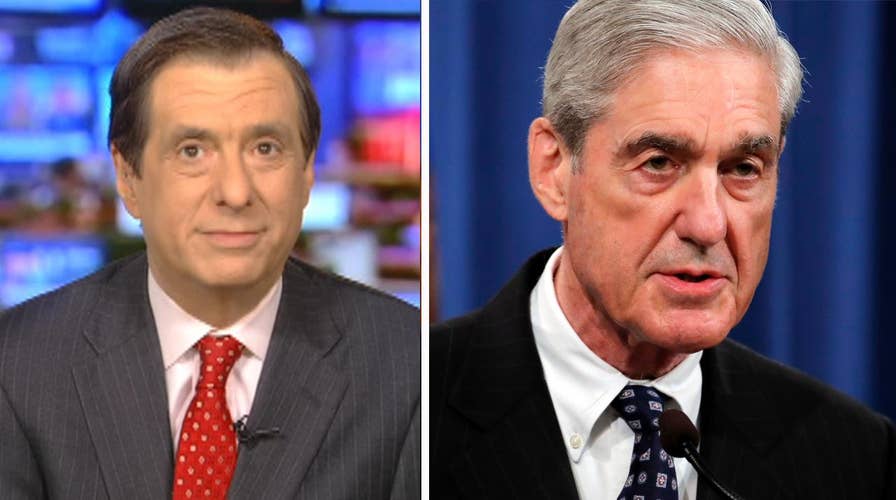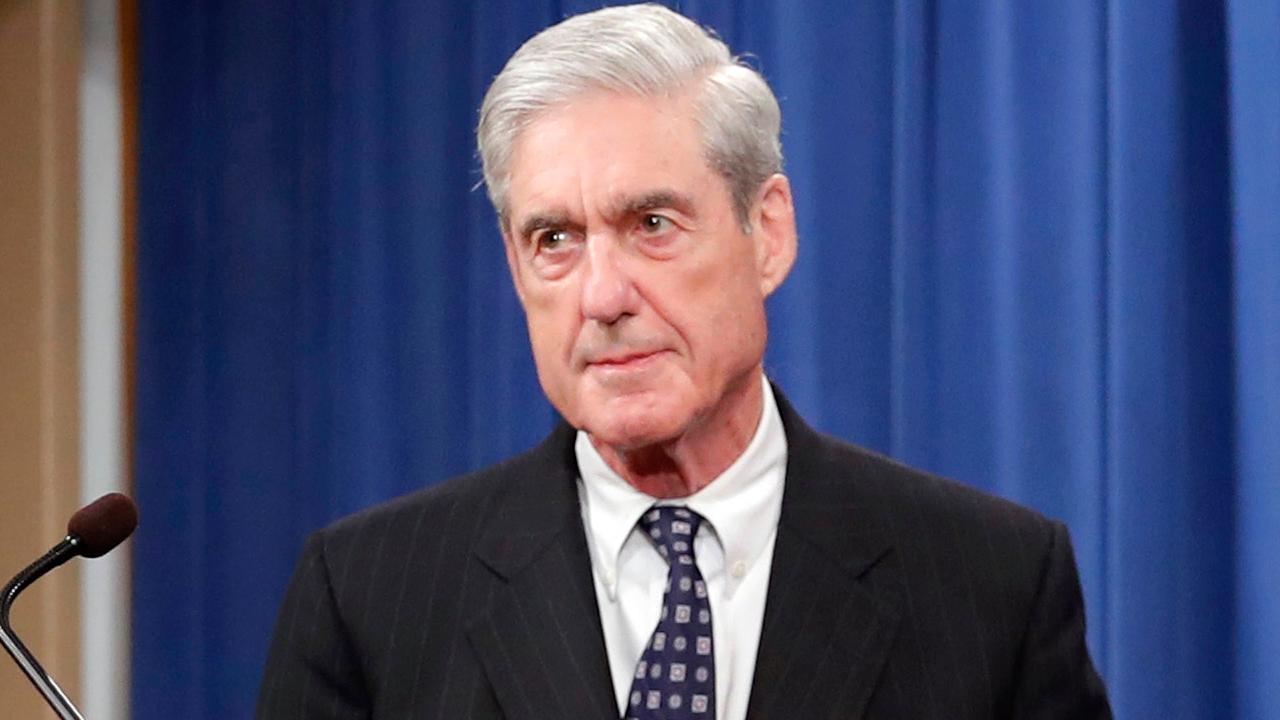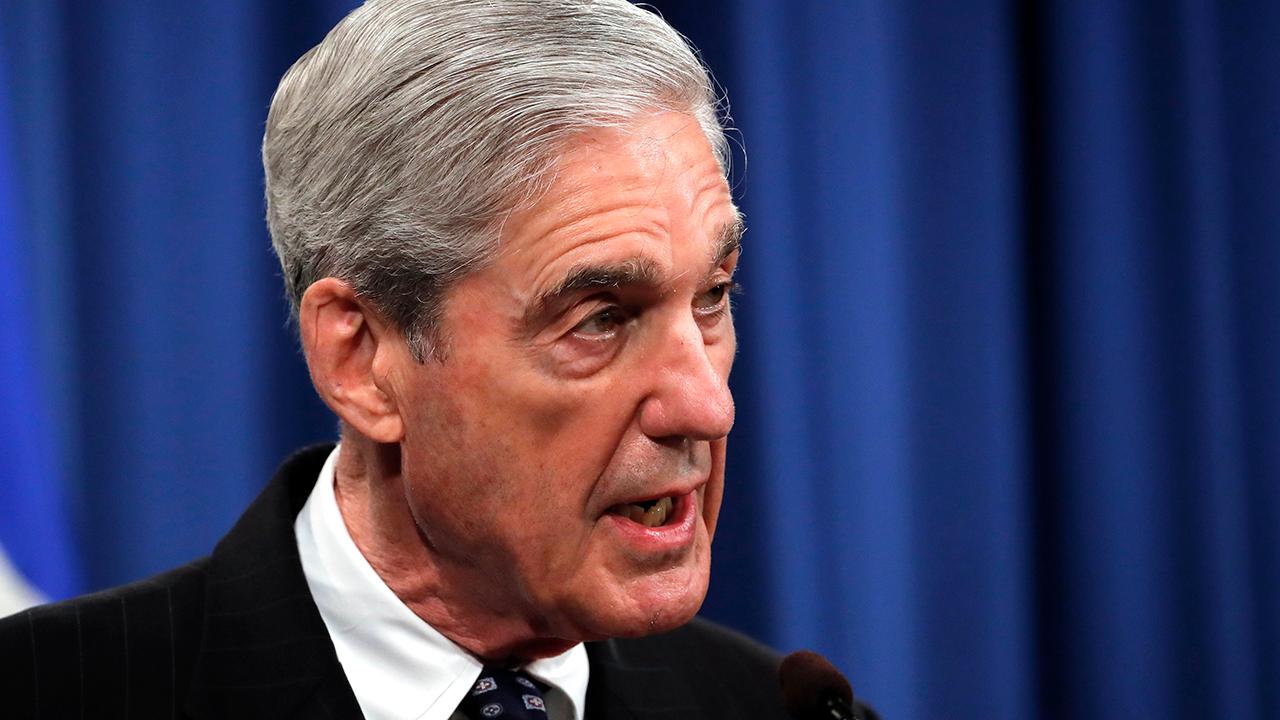Howard Kurtz: What was point of Mueller probe that could not charge the president?
'MediaBuzz' host Howard Kurtz weighs in on Special Counsel Robert Mueller's televised statement addressing the Russia probe and his resignation.
Robert Mueller tried, ever so carefully, as if he was weighing his words on a scale, to deliver a neutral summary of his report and then vanish from public life.
Good luck with that.
If you had to boil down to five words the approach taken by the outgoing special counsel, it was this: "The report is my testimony."
Still, prognosticators and politicians of all stripes rushed to parse each syllable in the light most favorable to their views. About the only thing everyone could agree on is that Mueller does not want to testify, and doesn't plan to say much if he's forced to show up on the Hill.
The chief takeaway is that Mueller wanted it known he didn't exonerate President Trump — which his report makes clear, but this was the truncated television version.
JUDGE NAPOLITANO: MUELLER STATEMENT 'NOT GOOD NEWS' FOR TRUMP
The key sentence: "If we had had confidence that the president clearly did not commit a crime we would have said so. We did not, however, make a determination as to whether the president did commit a crime."
The reason: Mueller decided he was bound by an old memo from the Justice Department's Office of Legal Counsel concluding that a sitting president can't be indicted.
"Charging the president with a crime was therefore not an option we could consider," he said.
BRET BAIER: MUELLER STATEMENT ON RUSSIA PROBE IS NOT 'NO COLLUSION, NO OBSTRUCTION'
It's worth noting that this is substantially different from what William Barr said when he offered his famous four-page summary. The attorney general said then that Mueller "was not saying that but for the OLC opinion, he would have found a crime. He made it clear that he had not made the determination that there was a crime."
But according to Mueller yesterday, he couldn't make that determination because of the DOJ memo.
The Mueller pronouncement that many commentators (left and right) are viewing as a handoff to Congress cites that same memo: "The opinion says that the Constitution requires a process other than the criminal justice system to formally accuse a sitting president of wrongdoing." That, of course, would be the I-word. And Kamala Harris, Cory Booker and other Democrats are now saying Mueller gave the House a green light to start the hearings, though Jerry Nadler said only that all options are on the table.
DEMS RAMP UP CALLS FOR TRUMP IMPEACHMENT AFTER MUELLER SPEAKS OUT ON RUSSIA PROBE
Trump, meanwhile, tweeted that "nothing changes" (true); that there was "insufficient evidence" (unclear); and that "the case is closed!" (true).
I believe that Mueller, a former FBI director who once commanded respect from both parties, was trying to remain nonpartisan. But these troubling questions remain.
SUBSCRIBE TO HOWIE'S MEDIA BUZZMETER PODCAST, A RIFF OF THE DAY'S HOTTEST STORIES
If Mueller took the view from the start that he couldn't bring charges against an Oval Office incumbent, why have a costly, two-year investigation in the first place?
By this logic, as Brit Hume has pointed out, if Mueller had found evidence of collusion between the Trump campaign and Russia, he couldn't have said so. He could only report it if he found no collusion, as he ultimately did.
That same constraint is leading to the widespread media interpretation that Mueller must have wanted to bring an indictment against Trump since he felt he couldn't clear him, but that his hands were tied.
Keep in mind that Mueller could have chosen to disagree with the DOJ memo and pursue criminal charges anyway if he felt they were warranted.
Keep in mind as well that Barr expected Mueller to make a recommendation on criminal charges, but Mueller kicked that back to the AG.
I've had people ask why Mueller didn't just say in the report that his judgment Trump obstructed justice, but we are barred from bringing a case.
CLICK HERE TO GET THE FOX NEWS APP
As an old Justice Department reporter, I can tell you there is a very strong prosecutorial practice — famously flouted by James Comey in the Hillary case — that you either indict or shut up. In other words, the prosecutor's job is to secure or decline an indictment, not trash someone's reputation without bringing charges.
Obviously, Mueller was required to submit a report, but he tried yesterday not to put his thumb on the scales of justice.
Still, the media have collectively divined that Mueller wants the House to do what he could not, whether he used those words or not.







